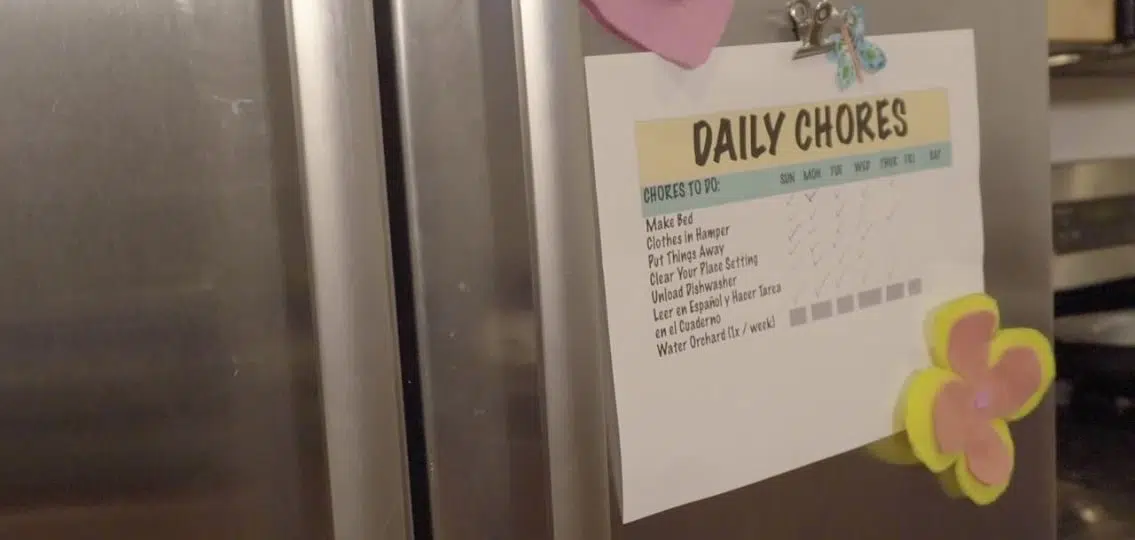The transition to a new school year can be daunting. But in my family, nothing surpasses the shock of transitioning from structured school days to the lawlessness of a stay-at-home vacation. Summer can be challenging when the long days run together like spilled paint. But then, so are the smaller seasonal school vacations, and those three- and four-day weekends. During those respites from organized chaos, my kids take full advantage of their time to goof off.
It’s a bit like Thunderdome over here during days off from school, where two enter and only one leaves standing. They bicker over who gets to play the video games first and brawl over who gets the TV remote. My 11-year-old daughter will emerge from hibernation an hour past breakfast: hair going seven different ways, sleep crusting the corners of her eyes, and grouchy as a bridge troll from staying up hours past her bedtime reading into the night.
In our family, with our two kids and two working parents, we’ve found a vacation schedule helps us know what to do during school break and tame our unruly crew. Here are some tactics we use to regain some semblance of order in our household.
Structured time during school break works for us
1. Make a daily vacation schedule
Even during vacations, my kids need a daily schedule to make them feel productive. It’s too easy to let one day of TV and video games turn into one week, while dirty dishes pile up next to the sink. The beauty of setting a daily vacation schedule is that it can be as relaxed or as rigid as we like. We make a goal for each day, whether that’s limiting screen time to an hour or getting X loads of laundry done. Working toward a goal each day makes us feel like each day counts and rewards us with a sense of accomplishment.
2. Assign extra chores
More free time means my kids have more time to make a mess—and with my husband and I both working we found we couldn’t keep up with it. Our solution was to have our kids learn to clean up after themselves. It caught me by surprise discovering just how much more responsibility my tween daughter could handle.
Recently, she went to a horse show competition where the kids were expected be entirely self-sufficient for 12 hours. She had to care for her horse (feed, clean, muck stalls), manage her schedule, remember to eat, keep her work area neat, and be where she needed to be on time. I thought the competition judges were asking too much of them. But to my surprise, my daughter held her own. The experience taught both of us that she could handle more responsibility than I’d been asking of her lately. Consequently, once we returned home, her chore level increased. Now, she feeds the animals every morning, handles her own laundry, and loads/unloads the dishwasher. Yes, she pushed back against her new roles initially; but we worked through her resistance together and now she completes her chores without arguing about them like a trial lawyer.
3. Hold to firm bedtimes
Not gonna lie, it’s a challenge. But it helps to remember that our tween wakes up happier and more energetic on days when she gets enough sleep. Before, she used to drag herself out of bed like a slug after staying up way too late reading. Now she hops out of bed with enough energy to power a radio. I feel like teaching her to respect that boundary around bedtime sets her up to succeed at whatever challenges the next day brings.
4. Make a Fun Activities list
We compile the list as a family, making sure it’s full of activities that appeal to EVERYONE in the house. Now when one of us has free time and doesn’t know what to do, we consult the list for ideas. The list comes in handy year-round. When my husband and I need to get work done and we want our kids busy and off screens, we tell them to go to the list to find something fun to do. This, we’ve found, helps limit their screen time and encourages more family time (when they choose something like a board game).
5. Show each other (and ourselves) grace
I tend to be hard on myself when I don’t accomplish what I set out to achieve, and so when I don’t achieve my summer goals I have to remind myself to show a little grace. It helps to remember that our overall goal for vacation is to enjoy time as a family and to give our kids (and ourselves) a much-needed brain break.
Creating a daily schedule has definitely helped my family organize our vacation days and weeks better. We rely on it a lot, and if we find it’s too rigid for our family to manage, we simply adjust it to fit our needs. If we don’t meet our goals, we show grace and try harder to get back on track the next day. Our vacation schedule gives us just enough structure to allow us to enjoy the reward of freedom and strengthen our family bonds.




